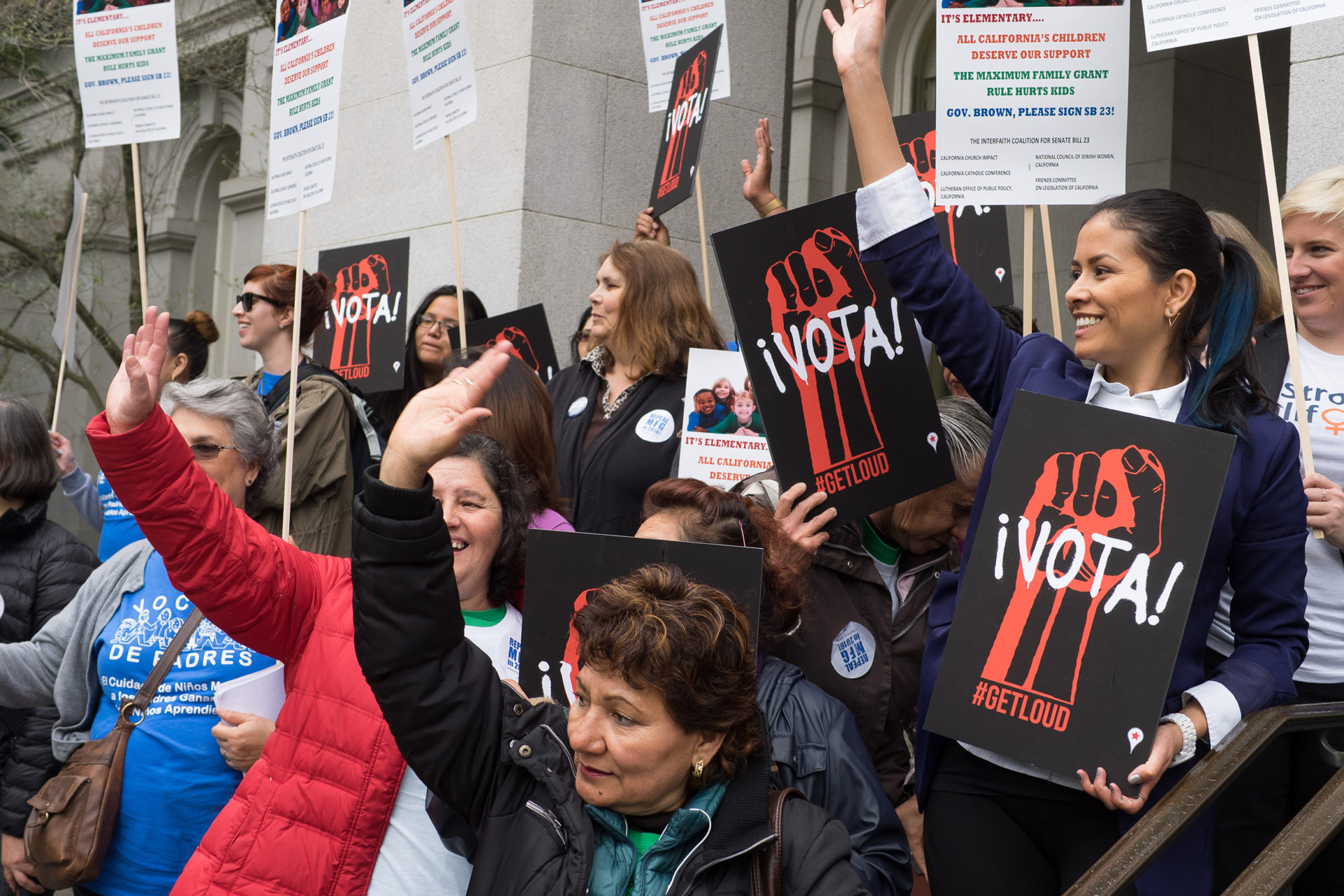Worker-powered and cross-sector campaigns across the country are leading to groundbreaking industry-specific policy efforts and wins to combat harassment, discrimination, and pay inequality. Courageous women workers and their allies are not just leading change in their industries. They are developing solutions from which other industries can learn.
Innovation in the Janitorial Industry
Women janitors are taking charge of eradicating sexual harassment in their industries. Partnering with Equal Rights Advocates, SEIU and others, janitors in California formed the Ya Basta Coalition and led passage of two of the country’s industry specific laws to combat harassment, ensure employer accountability and institute peer-to-peer training initiatives. Washington followed suit with an even more expansive law requiring, in part, that janitorial contractors, hotel, motel, retail, and security guard entities adopt a sexual harassment policy; provide mandatory sexual harassment prevention training to managers, supervisors, and employees; and provide a resource list to workers.
Safety for Isolated Workers In Hotels and Beyond
Many low paid workers do their jobs in isolated workplaces that make them particularly vulnerable to sexual predators. Workers are fighting back – successfully calling for “panic buttons” in the event they face harassment or assault. Washington, New Jersey and Illinois have passed laws requiring that hotels, casinos and other types of employers provide workers with panic buttons to activate if they are placed in danger on the job.
Workers In Professional Settings But Outside Traditional Employment
California’s Unruh Civil Rights Act prohibits sexual harassment in business, service and professional relationships and in 2018, the state passed a law clarifying that sexual harassment by investors, elected officials, lobbyists, film directors, and producers is prohibited under the Act.
Legislative Employees
Several states have passed laws protecting individuals working within state legislatures against sexual harassment and discrimination, including in some states, reporting requirements, and the use of taxpayer funds to pay settlements involving sexual harassment by legislators.
Combating Harassment and Discrimination in the Construction Industry
California has enacted laws to address harassment and discrimination in the construction industry including a law requiring the development of recommendations for an industry-specific harassment and discrimination prevention policy and training standard for use by employers in the construction industry. The state also passed a law expressly prohibiting discrimination in any building and construction trades apprenticeship programs and requiring each program to adopt policies and procedures to prevent and combat discrimination and harassment of apprentices as well as promote equal opportunity implement procedure
Ending the Tipped Minimum Wage in Restaurants and Other Industries
In much of the country, workers in some tipping industries earn a subminimum wage, which is as low as the federally sanctioned subminimum wage of $2.13 per hour. This poverty wage forces workers to rely on tips and the sexual harassment that often accompanies tipped work. Restaurant Opportunities Center United, the One Fair Wage Campaign, and other partners are leading efforts across the nation to abolish the tipped minimum wage. The One Fair Wage campaign’s successes include Alaska, California, Montana, Minnesota, Nevada, Oregon, and Washington, and the fight continues.

